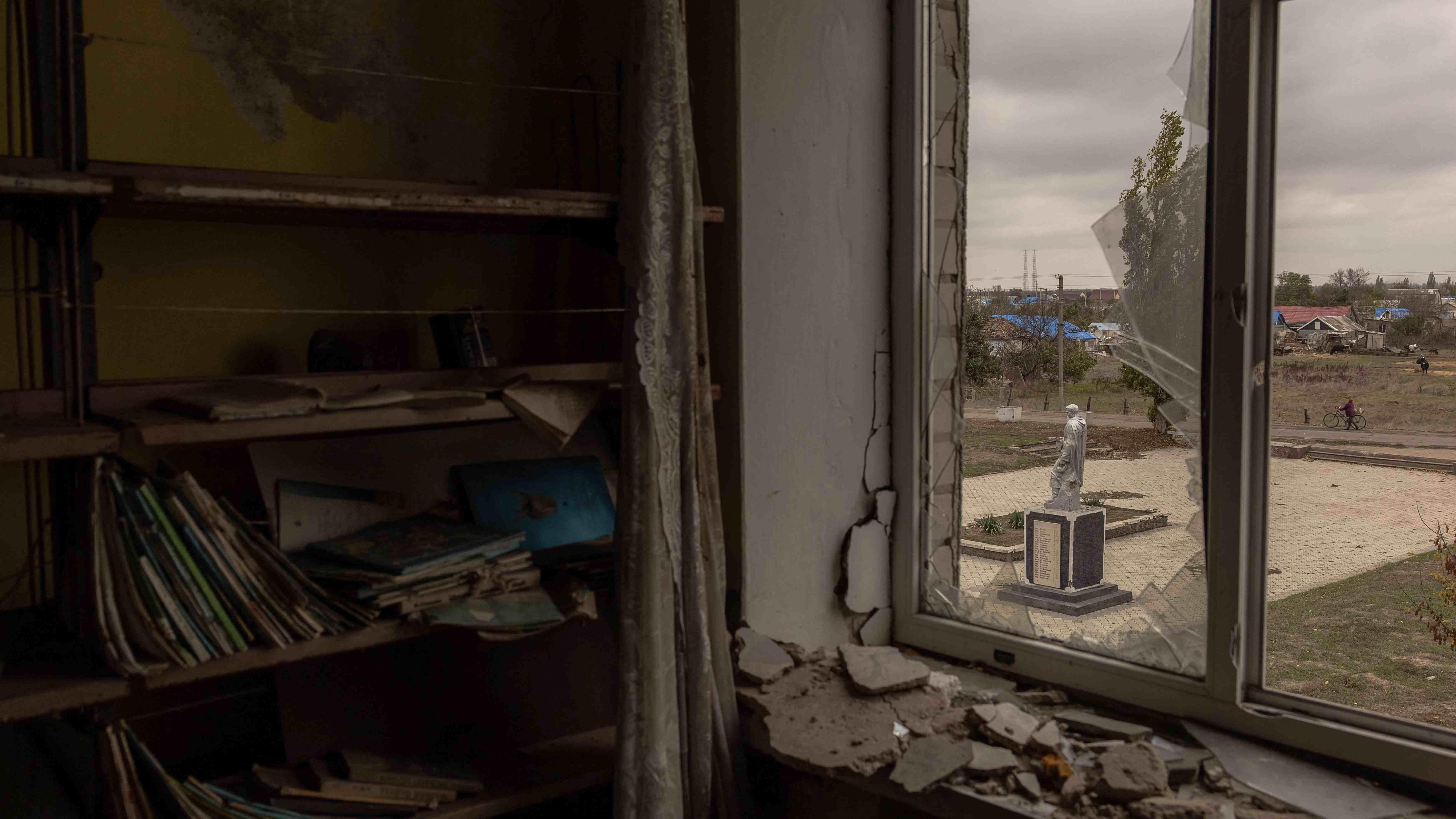
Beneath a tall residential building in the southern Ukrainian city of Kherson, policemen and soldiers cautiously circled a shell casing on the ground surrounded by debris.
The fragment -- the remains of a Soviet-era Grad rocket -- had torn through the building's ninth floor, ripping a large hole in its exterior and sending debris in all directions.
In the bloc's burnt-out corridors, Natalya, 58, wept for her mother who was killed in the blast.
"It was under this slab that she was found," she said, pointing to a huge block of concrete with one hand, as she clutched her white bathrobe.
Beneath her feet were what remained of her kitchen -- a jumble of charred pasta and melted kitchenware.
In the flat next door, a young woman stepped into the remains of her living room.
Seeing the damage, she clasped her hands over her mouth and then gestured at a religious icon still hanging on the wall.
"God! Why have you done this to me?" she asked, before bursting into tears.
Kherson had a pre-war population of almost 300,000. It was quickly seized by Russian forces in March 2022 and suffered an eight-month occupation before it was liberated last November 11.
It was the first major city and the only regional capital to fall since Russia invaded in February 2022.
But the scenes of civilians and soldiers hugging and celebrating the end of Russia's occupation were quickly followed by routine bombardment from Moscow's forces.
The city lies on the western bank of the Dnipro river, the de-facto frontline between the two warring sides since Moscow retreated to the river's east bank last year.
- 9,500 strikes -
In the space of a year, almost 200 civilians have been killed in the approximately 9,500 Russian strikes on the city and its suburbs, according to Nadia Kukhta, spokeswoman for the Kherson regional administration.
Eighty percent of healthcare facilities in the wider region have been destroyed or damaged, the Doctors Without Borders group said last month.
Authorities estimate just 60,000 residents remain.
Many windows in Kherson remain blown out, and some buildings are still adorned with blue and yellow ribbons that came to symbolise the city's peaceful resistance movement during the occupation.
Only a few shops remain open in the centre, including grocery stores and pharmacies that have become a magnet for Kherson's last remaining residents.
A few elderly people continued to put stalls out in the city market.
"It's not recommended by the town hall. They say it's too dangerous," said Borys, the site's 70-year-old organiser.
"The young people are going to the front and we old people have to work. And that's in spite of the bombings," he said.
Walking around, he pointed at holes left by shrapnel from a rocket that fell days earlier.
"In this shop, a tailor went into cardiac arrest because of the explosion. We buried him yesterday," he said.
- 'Grey' city -
Borys now lives in the centre of Kherson after leaving his home on the other side of the river Dnipro, on the east bank.
"The Russians bomb us from there. It's so regular that you almost get used to it," he said.
He recounted escaping during the occupation on a boat at night.
"There were dozens of us on those boats. The Russians had cut off access to the bridge," he said.
Since then, he has received updates about his home from neighbours who stayed behind.
"The Russians stole everything from my house, even my car... I miss my house so much", he said.
Olena, 44, also fled when the city was controlled by Russian forces.
"The Russians were trying to mobilise young people over the age of 18, and as our son had just turned 18, my husband said we had to flee," she told AFP.
Packed into a car with as many belongings as they could conceivably take, they had to pass through 13 Russian checkpoints.
"They were all manned by Chechens," she said, referring to Russian troops from the Caucasus region.
"But at the last one, it was Russians who spoke Ukrainian, to trap us. But we still managed to escape, pretending that I was going to see my pregnant sister."
She returned to Kherson five days after the liberation to "find her home", she said.
And the return was a shock.
"I discovered that my city, which used to be so colourful, had turned grey. The people were all dressed drably. Even my friends' children no longer smiled, they were emotionless", she recalled.
She now volunteers for a charity, to help the precarious humanitarian situation.
"People need it here," she said.